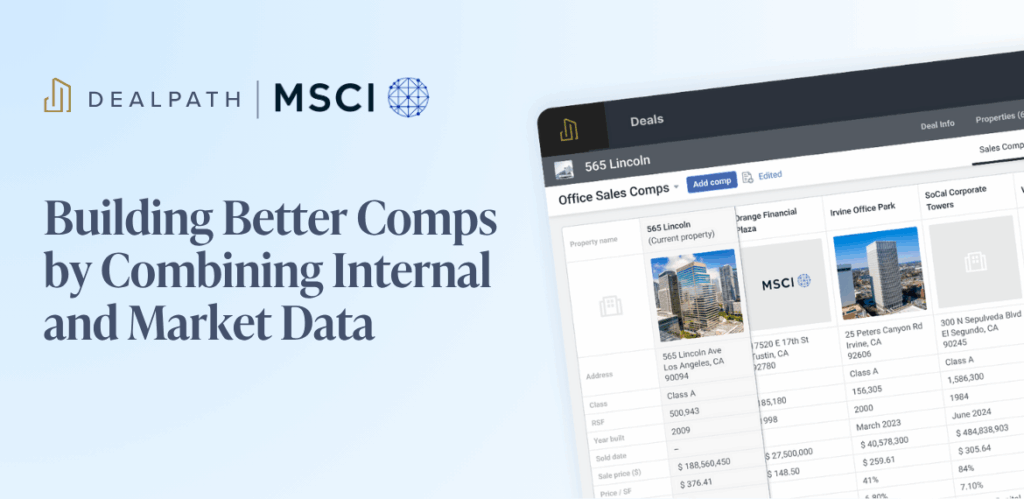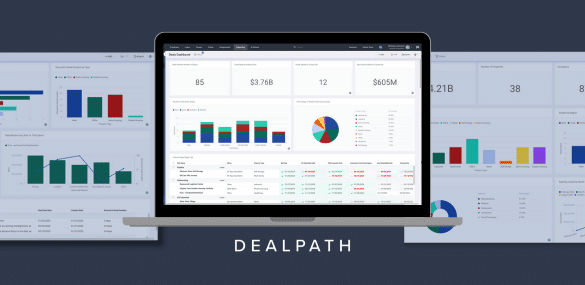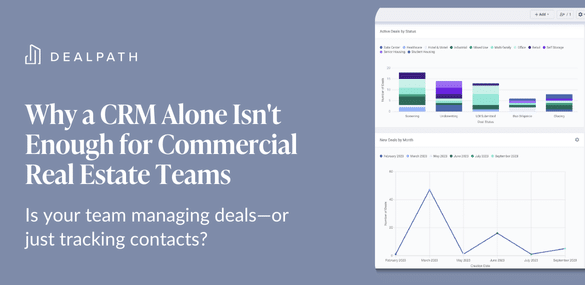In today’s commercial real estate environment, teams are prospecting tens, if not hundreds of deals and are in the process of acquiring or developing multiple properties at any given time. Because of the stiff competition and complex moving pieces within each deal, internal CRE tools and technology become vital to ensure all critical dates are met and deal tasks are completed correctly to give firms the best possible chance of winning the bid and successfully executing the acquisition or development of a property.
Within the commercial real estate industry, this process is getting increasingly difficult to manage. The entire CRE deal management process; from prospecting all the way to closing on a newly acquired or developed property uses three common tools:
- Excel Spreadsheets for tracking
- A Deal Pipeline spreadsheet contains a list of deals in various stages of the firm’s pipeline and corresponding, important metrics on each property, such as building type, net rentable area, tenant occupancy, and more. This spreadsheet usually consists of deals in all stages of a firm’s pipeline, including dead deals, which have been prospected out by acquisition analysts and managers and can be a list as long as 1,000+ deals.
- Each deal typically has a Deal Tasklist spreadsheet that contains a template of tasks that needs to be completed by the team throughout the acquisition and development processes to fully execute the deal. This spreadsheet assigns accountability of specific tasks to members of the team and shows specific due dates to ensure each phase of the deal is completed on time.
- Cloud Storage for file management
- Firms often use a standalone cloud storage provider, such as Dropbox or Box, to store deal files and share them internally and with third parties. This allows them to better organize files (by deals, region, or any other method) and better coordinate with team members and external deal members by sharing file links.
- Email and Phone for collaboration
- Team members rely heavily on long, multi-party email threads and phone calls to get status updates and coordinate on deals. With complex transactions involving multiple parties (brokers, attorneys, consultants, lenders, etc.) making sure that tasks are completed on time and correctly can require heavy coordination.
While spreadsheets can work for tracking data, commercial real estate teams will struggle to effectively collaborate on deal pipeline reports and task list spreadsheets. This leads to missed critical dates, incomplete tasks throughout the deal process, and confusion amongst team members on the status of a deal. Additionally, more often than not, there are multiple versions of these spreadsheets floating around the firm, leaving team members unsure if they’re reviewing and taking action on the correct, most up-to-date deal information.
Because of the deal tracking and collaboration limitations in current deal flow processes, firms are beginning to leverage deal tracking and collaboration tools, like Dealpath, to increase team’s productivity, reduce their risk profile, and add the ability to scale deal throughput.
It is critical to have a system of record for a firm’s deal pipeline, a clear progression of tasks based on the type of deal transaction, and deal files. This enables CRE teams to work together more efficiently, quickly report on all or a subset of their deals, and intuitively find the files they’re looking for with one quick search. Each commercial real estate firm operates in their own unique way – how they track their deals, tasks, assign work, report on deals and assignments, and store deal files. It is critical to not only find tools flexible to work how you do, but also gives you the power to amplify your team’s abilities through efficiency, collaboration, and data.
The next time you find yourself asking around for the status of a deal or task, wondering if you’re viewing the most up-to-date deal document, or scrolling through a long email thread looking for something shared with you in the past, remember there are deal tracking and collaboration technology that can help your firm reach the productivity and results you need to execute more deals with fewer errors, faster.
If you’re interested in finding out how Dealpath can help you with your needs (or have questions or feedback about my post), email me at success@www.dealpath.com.



